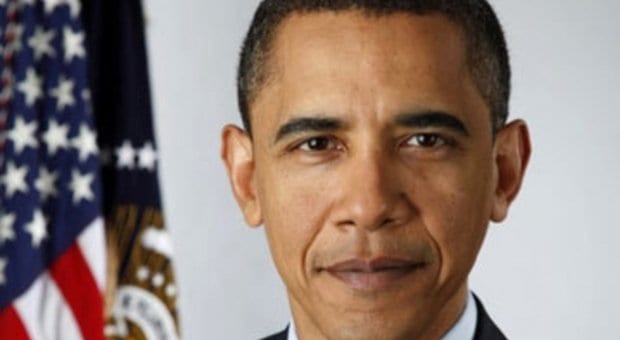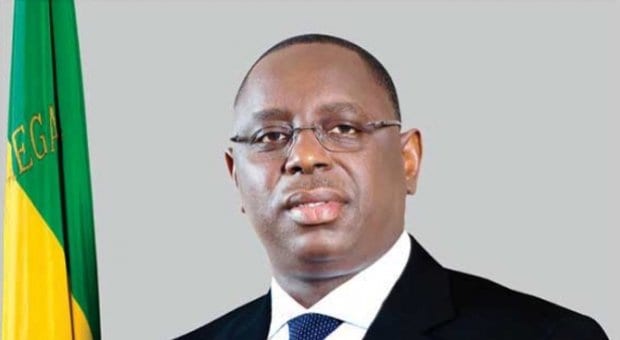
American President Barack Obama urges African governments to extend equal rights to gay people.
In the wake of the release of an Amnesty International report that raised concerns about the continued criminalization of consensual same-sex relationships in 38 African countries, American President Barack Obama, who is travelling on the continent, called for the extension of equal rights to gay people during a media conference in Dakar, Senegal.
Obama’s statements, made in the presence of Senegal’s president, Macky Sall, also follow the US Supreme Court’s rulings that struck a key provision of the 1996 Defense of Marriage Act and paved the way for the return of gay marriage to California.
Asked if he pressed Sall to decriminalize homosexuality in Senegal, a predominantly Muslim country, Obama said the topic “didn’t come up” in a bilateral meeting he had with the Senegalese leader.
But Obama went on to make what he called a “general statement.”
“When it comes to how the state treats people, how the law treats people, I believe that everybody has to be treated equally. I don’t believe in discrimination of any sort. That’s my personal view,” he said.
He added, “Every world religion has this basic notion that is embodied in the Golden Rule — treat people the way you want to be treated. And I think that applies here as well.”
According to an Associated Press (AP) report, Sall countered that his country “was not ready to decriminalize homosexuality,” adding that that doesn’t mean “we are homophobic.”
“Society needs to take its time to reflect on the question without pressure. We don’t persecute homosexuals in Senegal. Society will regulate this as attitudes evolve,” Sall is quoted as saying.
Article 319 of Senegal’s Penal Code reads in part that “whoever will have committed an improper or unnatural act with a person of the same sex will be punished by imprisonment of between one and five years and by a fine of 100,000 to 1,500,000 francs. If the act was committed with a person below the age of 21, the maximum penalty will always be applied.”
Amnesty International’s report, entitled “Making Love a Crime: Criminalization of Same-Sex Conduct in sub-Saharan Africa,” notes that there was a ramping-up of efforts to further criminalize queer people in the region in the last 10 years by targeting behaviour or imposing steeper penalties and broadening the scope of existing laws.
The report cites Uganda’s on-again, off-again attempts to introduce the 2009 Anti-Homosexuality Bill, which reportedly still includes the death penalty for so-called acts of aggravated homosexuality. It also points to South Sudan’s criminalization of consensual same-sex relations with up to 10 years’ imprisonment after it became independent in 2008, and Burundi’s 2009 revision of its criminal code to outlaw “sexual relations with someone of the same sex.”
It adds, “In 2011 and 2012, Nigeria and Liberia respectively introduced bills to toughen penalties for same-sex conduct. And Mauritania, northern regions of Nigeria, the southern region of Somalia and Sudan, retain the death penalty for the same.”
Nigerian lawmakers approved an anti-gay measure May 30 that bans gay marriage, prevents the formation of organizations supporting gay rights, and establishes prison sentences of up to 14 years for offenders. The bill was reportedly headed to President Goodluck Jonathan to sign into law, but it is unclear whether he will sign it.
“Even in countries where anti-homosexuality laws are not routinely implemented, the existence of the laws alone provide opportunities for abuse, including blackmail and extortion, both by police and by non-state actors,” the report continues.
The report echoes an increasing number of media reports and gay rights activists in highlighting the legacy of Western colonialism that saw the introduction of laws criminalizing same-sex sexual relations in parts of Africa.
England and Wales abolished their laws criminalizing consensual same-sex sexual conduct in 1967, while France decriminalized homosexuality in 1791 but “imposed anti-sodomy laws on its colonies, including Cameroon, as a form of social control,” the report notes. It cites the comments of Dr Basile Ndjio, a senior academic from the University of Douala in Cameroon, about the reasons for the prevalent and deep-seated animosity queer people face.
“Contrary to received ideas, what western colonialization brought into African colonies was homophobia and not homosexuality, which was part of a variety of social practices. The colonial administration only extended through anti-sodomy laws the moralistic view of the Church, which perceived same-sex relationships as an expression of cultural primitivism and then encouraged African natives to move towards the so-called modern sexuality; that is, exclusive heterosexuality.”
More recently, Ndjio noted that the increasingly hostile climate has had repercussions for his research on homosexuality.
“I still remember that I was once questioned by a former dean of my faculty who was furious at me because he was told that I was doing research on what he called a ‘nasty and perverse topic.’ I was also suspected of encouraging some of my students to switch their research interest towards same-sex relations. In reply to his concern, I had to remind him that I was an academic and for that reason there could not be a taboo or forbidden subject for me.”
Jacqueline Hansen, staff liaison on LGBTI issues at Amnesty International Canada, says that even a country like South Africa, which explicitly prohibits discrimination on the grounds of sexual orientation under its 1996 constitution and which legalized gay marriage in 2006, demonstrates the disconnect between policy and practice.
“Lesbians, and LGBTI people who do not conform to culturally approved models of femininity and masculinity live in fear of being assaulted, raped and murdered by men,” the report says. “Between June and November 2012, at least seven people, five of them lesbians, were murdered in what appears to be targeted violence related to their sexual orientation or gender identity. The other two were gender non-conforming gay men.”
Hansen sees the report as a tool for activists to use in their work, because it lays out what’s going on, what action is needed, and where.
“It’s useful to add to the discourse, to have people talking about these issues, to have it raised in various forums — whether it’s civil society, whether it’s governments, whether it’s at the UN or elsewhere, the African Union — that’s something we’d like to see continue.”
Asked if she expects African states, which often bristle at Western criticism of their anti-gay records and call homosexuality “un-African,” to heed the report’s findings, Hansen says she believes the well-documented argument about the outside origins of homophobia and the prevalence of same-sex sexuality in African societies can be leveraged in such scenarios.
She also points out that there’s ongoing local activism in the region to end homophobia. “Where outside allies come in handy is when it’s so difficult and dangerous in some countries that people rely on outside support to shore up the work that they’re doing.”
In a recent interview with Xtra, activist Frank Mugisha, of Sexual Minorities Uganda (SMUG), said that public statements, like the one Canadian Foreign Affairs Minister John Baird made against Uganda’s Anti-Homosexuality Bill in the presence of that country’s parliamentary speaker, Rebecca Kadaga, can make life difficult for “people on the ground.” Mugisha instead urged diplomats to consult with groups like SMUG that have a better sense of what’s happening on the ground and how statements will be received.
Asked if Amnesty has found international pressure and criticism to be counterproductive, Hansen says it’s not a “one-size-fits-all on this.”
“We are very sensitive to the needs of activists on the ground, and we very much listen to what they are saying. If we are hearing that it’s going to be useful for us to have a solidarity action, to speak out on something, then we do what we can. But sometimes, likewise, we also hear from our partners in-country who say, ‘You know what, voices from the outside aren’t going to be useful right now, but we need to do this in a different way at the national level and not have the international pressure,’ and we stay quiet,” she says. “We’ve done that in a number of cases, including Uganda.”
See the Amnesty International report and recommendations.


 Why you can trust Xtra
Why you can trust Xtra


